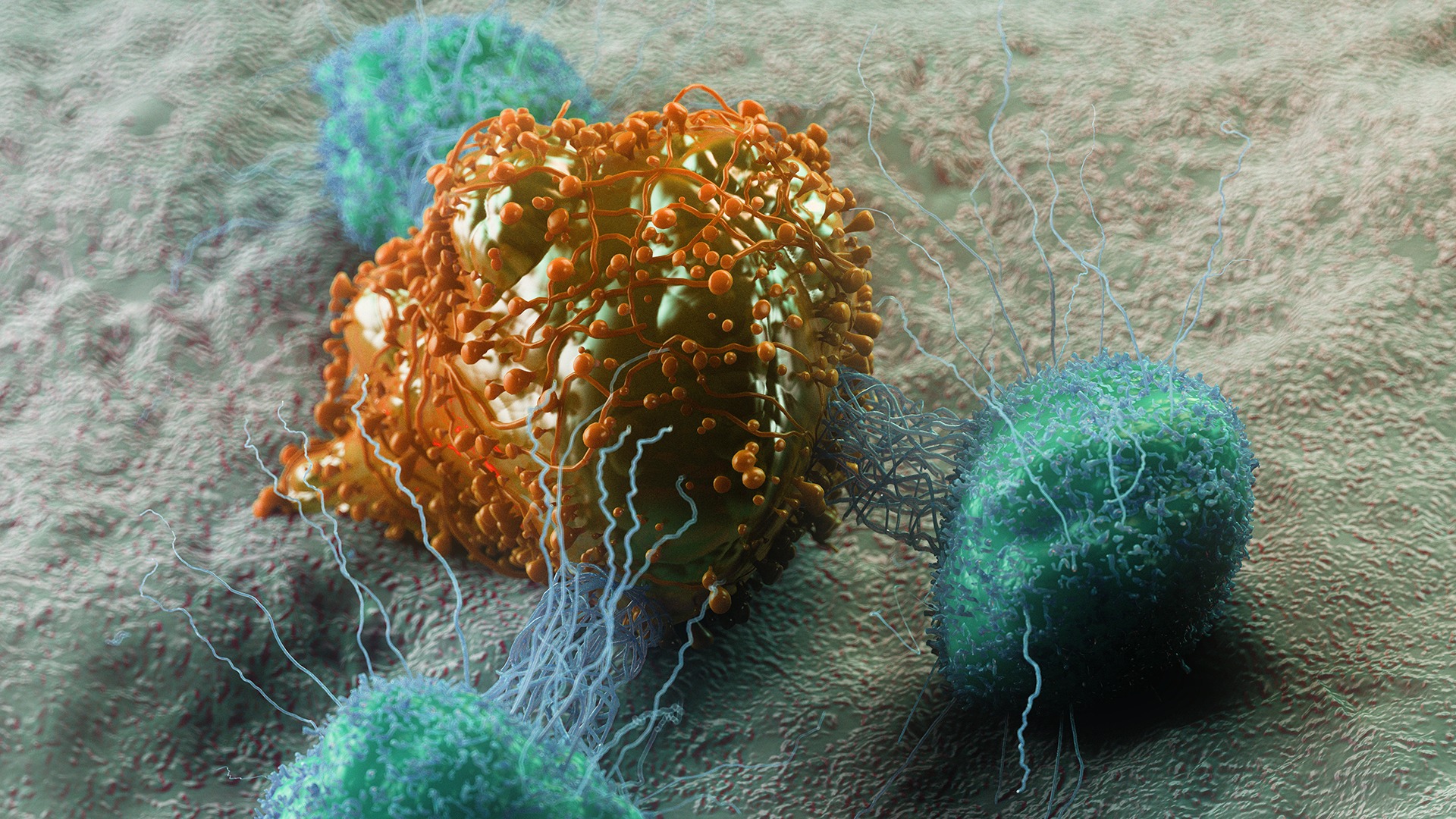Killing cancer cells by blocking their waste disposal
Researchers from Karolinska Institutet and the SciLifeLab Chemical Biology Consortium Sweden (CBCS) have identified a chemical compound, CBK77, that has the potential to inhibit protein recycling in cancer cells, subsequently leading to tumor cell death. CBK77 also turned out to have an unexpected advantage; it only affects cells that express the NQO1 enzyme, commonly upregulated in cancer cells.
One of the big challenges in the development of cancer therapeutics is to distinguish cancer cells from healthy cells. As cancer cells are in essence our own cells that went rogue, differences are subtle, and most anti-cancer drugs cause collateral damage to healthy tissue. Most traditional drugs take advantage of the fact that cancer cells rapidly divide by targeting the DNA, which needs to be duplicated with every cell division. Yet in doing so, healthy, rapidly dividing cells end up in the crossfire, causing side effects of commonly used anti-cancer therapies.
A relatively new concept in anti-cancer therapy is to target the waste disposal of cancer cells instead. Due to their hyperactive state, cancer cells produce large amounts of waste and depend heavily on efficient recycling mechanisms. Blocking the proteases that recycle damaged proteins leads to waste accumulation and pollution of the cellular environment – an effective treatment for certain types of blood cancer. Still, healthy cells are also compromised to some extent by these treatments.
Nico Dantuma’s laboratory at Karolinska Institutet, in collaboration with the SciLifeLab Chemical Biology Consortium Sweden (CBCS), set out to identify small molecules that can inhibit protein recycling. The group screened many drug-like molecules to find those that caused cells to accumulate a fluorescently labelled waste protein. The screen resulted in the identification of compound CBK77, which caused accumulation of waste proteins in cancer cells, rapidly followed by cell death.
A genome-wide CRISPR knock-out screen performed at the SciLifeLab CRISPR Functional Genomics unit led to the surprising finding that CBK77 could block protein recycling only in cells that express the redox enzyme NQO1, which is often upregulated in cancer cells. Biochemical analysis confirmed that CBK77 is indeed changed by NQO1 into reactive metabolites.
Mass spectrometry revealed that unlike the conventional inhibitors of protein recycling, CBK77 does not block the protease that breaks down proteins, but instead targets ubiquitin, a tag the cell uses to label a protein for destruction.
This first-in-class, bioactivatable inhibitor of protein recycling shows that the specific intracellular environment of cancer cells can be leveraged by drugs targeting this pathway, and identifies the destruction tag ubiquitin as a potential drug target.
The study is published in Nature Cell Death & Disease





